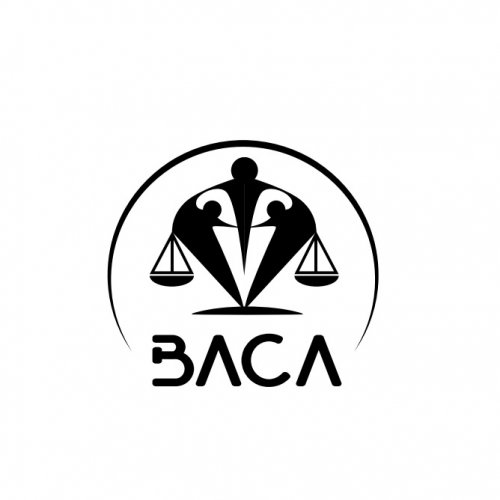Best Civil & Human Rights Lawyers in Juba
Share your needs with us, get contacted by law firms.
Free. Takes 2 min.
List of the best lawyers in Juba, South Sudan
About Civil & Human Rights Law in Juba, South Sudan:
Civil and Human Rights in Juba, South Sudan are protected by both international conventions and domestic laws. These laws aim to safeguard individual freedoms, promote equality, and prohibit discrimination based on various grounds such as race, gender, religion, and political beliefs. Juba, as the capital city of South Sudan, has its own specific laws and regulations pertaining to civil and human rights.
Why You May Need a Lawyer:
There are several situations where you may require legal help in Civil & Human Rights in Juba, South Sudan. Some common instances include:
- If you believe your rights have been violated
- If you experience discrimination or unfair treatment
- If you face harassment or abuse
- If you have questions about your rights and responsibilities
- If you need assistance in filing a complaint or seeking justice
Local Laws Overview:
In Juba, South Sudan, the following key aspects of local laws are particularly relevant to Civil & Human Rights:
- The Transitional Constitution of South Sudan guarantees fundamental rights and freedoms to all individuals
- The Bill of Rights protects rights such as the right to life, freedom of expression, equality, and the right to a fair trial
- Discrimination based on race, gender, religion, or other grounds is prohibited
- Various laws and regulations address issues such as domestic violence, child protection, and land rights
Frequently Asked Questions:
1. What should I do if I believe my civil or human rights have been violated?
If you believe your rights have been violated, it is advisable to consult with a lawyer who specializes in Civil & Human Rights law. They can guide you on the necessary steps to take, such as gathering evidence, filing a complaint, and seeking legal remedies.
2. How can I report discrimination or unfair treatment in Juba?
If you experience discrimination or unfair treatment, you can report it to the South Sudan Human Rights Commission or seek legal advice from a lawyer specializing in Civil & Human Rights law. They can assist you in filing a complaint and pursuing appropriate action.
3. Are there any organizations in Juba that provide legal assistance for Civil & Human Rights cases?
Yes, there are several organizations in Juba that provide legal assistance for Civil & Human Rights cases, such as the Legal Aid Clinic and the South Sudan Law Society. These organizations offer guidance, support, and representation for individuals seeking justice.
4. Can I seek compensation for human rights violations in Juba?
Yes, if your human rights have been violated, you may be eligible to seek compensation. A lawyer specializing in Civil & Human Rights law can assess your case, advise you on the potential for compensation, and help you pursue legal action if appropriate.
5. What rights are protected under the Bill of Rights in South Sudan?
The Bill of Rights in South Sudan protects various rights, including but not limited to the right to life, freedom of expression, freedom of assembly and association, equality before the law, the right to a fair trial, and protection against torture and inhuman treatment.
Additional Resources:
For further information and assistance regarding Civil & Human Rights law in Juba, South Sudan, consider reaching out to the following resources:
- South Sudan Human Rights Commission
- Legal Aid Clinic - Juba
- South Sudan Law Society
Next Steps:
If you need legal assistance in Civil & Human Rights matters in Juba, South Sudan, you should consider taking the following steps:
- Research and identify lawyers or organizations specializing in Civil & Human Rights law in Juba.
- Reach out to them for an initial consultation to discuss your case and seek guidance.
- Provide them with detailed information about your situation, including any evidence or documentation.
- Follow their advice and instructions to proceed with your case, be it filing a complaint, seeking mediation, or pursuing legal action.
- Cooperate with your lawyer throughout the process and provide any necessary cooperation and assistance.
Lawzana helps you find the best lawyers and law firms in Juba through a curated and pre-screened list of qualified legal professionals. Our platform offers rankings and detailed profiles of attorneys and law firms, allowing you to compare based on practice areas, including Civil & Human Rights, experience, and client feedback.
Each profile includes a description of the firm's areas of practice, client reviews, team members and partners, year of establishment, spoken languages, office locations, contact information, social media presence, and any published articles or resources. Most firms on our platform speak English and are experienced in both local and international legal matters.
Get a quote from top-rated law firms in Juba, South Sudan — quickly, securely, and without unnecessary hassle.
Disclaimer:
The information provided on this page is for general informational purposes only and does not constitute legal advice. While we strive to ensure the accuracy and relevance of the content, legal information may change over time, and interpretations of the law can vary. You should always consult with a qualified legal professional for advice specific to your situation.
We disclaim all liability for actions taken or not taken based on the content of this page. If you believe any information is incorrect or outdated, please contact us, and we will review and update it where appropriate.
Browse civil & human rights law firms by service in Juba, South Sudan
Juba, South Sudan Attorneys in related practice areas.









